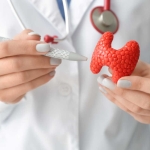6 Ways to Improve Acid Reflux Symptoms Naturally and Stay Heart Healthy
In 2015, a study from Stanford University suggested that the long-term use of certain medications used to treat symptoms associated with acid reflux can increase one’s risk of having a heart attack. Since its publication, studies continue to confirm its findings.
These medications, known as Proton Pump Inhibitors or PPIs, include the brand-names Prevacid, Nexium, and Prilosec, and are the strongest medications available to counter the effects of excess stomach acid. They are used to both prevent and treat ulcers, and to treat gastroesophageal reflux disease (GERD). PPIs are among the most widely prescribed class of medications in the United States.
About the 2015 study
After analyzing millions of medical records to find a relationship between heartburn medications and cardiovascular risk, researchers found that there was indeed a link between the two variables; people who used a PPI as part of their treatment for GERD had an elevated risk of suffering a myocardial infarction, commonly known as a heart attack. Furthermore, they found that this risk did not apply to patients who used another class of heartburn medications, called H2 blockers, which include brand names such as Pepcid or Zantac.
More recently, research has confirmed that the long-term use of PPIs not only increases the risk of a cardiac event, but can also increase the risk of dementia.
It’s important to note that when used appropriately as a short term treatment, PPIs can be effective to ease acid reflux symptoms. However, since PPIs are available over the counter, the risk of over-use increases as individuals are not necessarily aware of the long-term risks.
Questions? Give Us a Call!
Equally important to note is that some people who use a PPI may have a pre-existing condition that can cause an increased risk of having a heart attack. For example, obesity, alcohol consumption, and smoking are all risk factors for heart disease, and have all individually been shown to increase symptoms of acid reflux and GERD in clinical trials. These lifestyle factors must be taken into consideration before use. The bottom line is that one must always assess the actual risks and benefits of any medical intervention, and explore other possible interventions, before starting any medication.
6 Ways to Improve Acid Reflux Symptoms Naturally and Stay Heart Healthy
- Change your diet: Keeping a healthy weight is not only better for your heart, it’s better for controlling heartburn too! Spicy, fatty, or acidic foods can trigger heartburn so avoiding these types of foods makes a difference. Try eating smaller meals more frequently, cutting back on your caffeine intake, and don’t eat close to bedtime. Also, talk to your doctor about supplements such as deglycyrrhizinated licorice (DGL) & high-dose melatonin – two supplements that we prescribe to our patients at the Center with great results.
- Get tested for SIBO (Small Intestine Bacterial Overgrowth): Normally, the small intestine contains relatively few bacteria. Most intestinal bacteria are confined to the large intestine. A bacterial overgrowth in the small intestine can cause symptoms such as bloating, gas, and abdominal pain. It also interferes with normal digestion and absorption of food and can cause damage to the lining or membrane of the small intestine, which ironically can also be caused by prolonged use of an acid-suppressing medication. SIBO can often be an underlying cause of GERD and other gastrointestinal conditions – if you test positive for SIBO, treatment includes dietary modifications as well as probiotic supplementation, and in some cases, an antibiotic.
- Cut back on alcohol consumption: Drinking excessive amounts of alcohol can cause high blood pressure, a major risk factor for having a heart attack. While the research remains inconsistent on alcohol consumption as a cause of GERD, some studies have demonstrated that alcohol can contribute to its progression. If alcohol aggravates your GERD, your doctor may recommend that you limit or avoid consumption.
- Keep exercising: If you have heartburn or GERD you may notice that intense exercise can worsen your symptoms. Don’t let this keep you away from physical activity! Exercise is essential for optimal health and it’s particularly important in maintaining a healthy heart. For GERD sufferers, the trick is to find the right balance for your body to keep your symptoms at bay. Avoid physical activity after eating and try less jarring activities. Exercises that put your abs to work, like running, biking, and weightlifting, have been found to trigger symptoms more frequently because of stomach contractions, so these are good ones to avoid.
- Quit smoking, today: Smoking is a major risk factor for heart disease. It can damage the cells that line the blood vessels, causing them to thicken and narrow, thereby allowing clots to form, which can, in turn, block blood flow to the heart. A study published in the journal Best Practice & Research Clinical Gastroenterology showed that cigarette smoking can also increase the occurrence of acid reflux. If you have tried independently to quit smoking but have not been able to kick the habit, talk to your doctor today about cessation programs and support groups in your community.
- Try acupuncture or meditation: Alternative treatments, such as acupuncture and meditation, are both immune boosters and stress reducers that have consistently shown that they can improve GERD symptoms in patients.
Additional resources:
Association of Proton Pump Inhibitors With Higher Risk of Cardiovascular Disease and Heart Failure
We are here for you, and we want to help.
Our goal is to return you to optimal health as soon as possible. To schedule an appointment please call: 703-532-4892 x2
Updated February 16. 2023.











Leave a Reply
Want to join the discussion?Feel free to contribute!